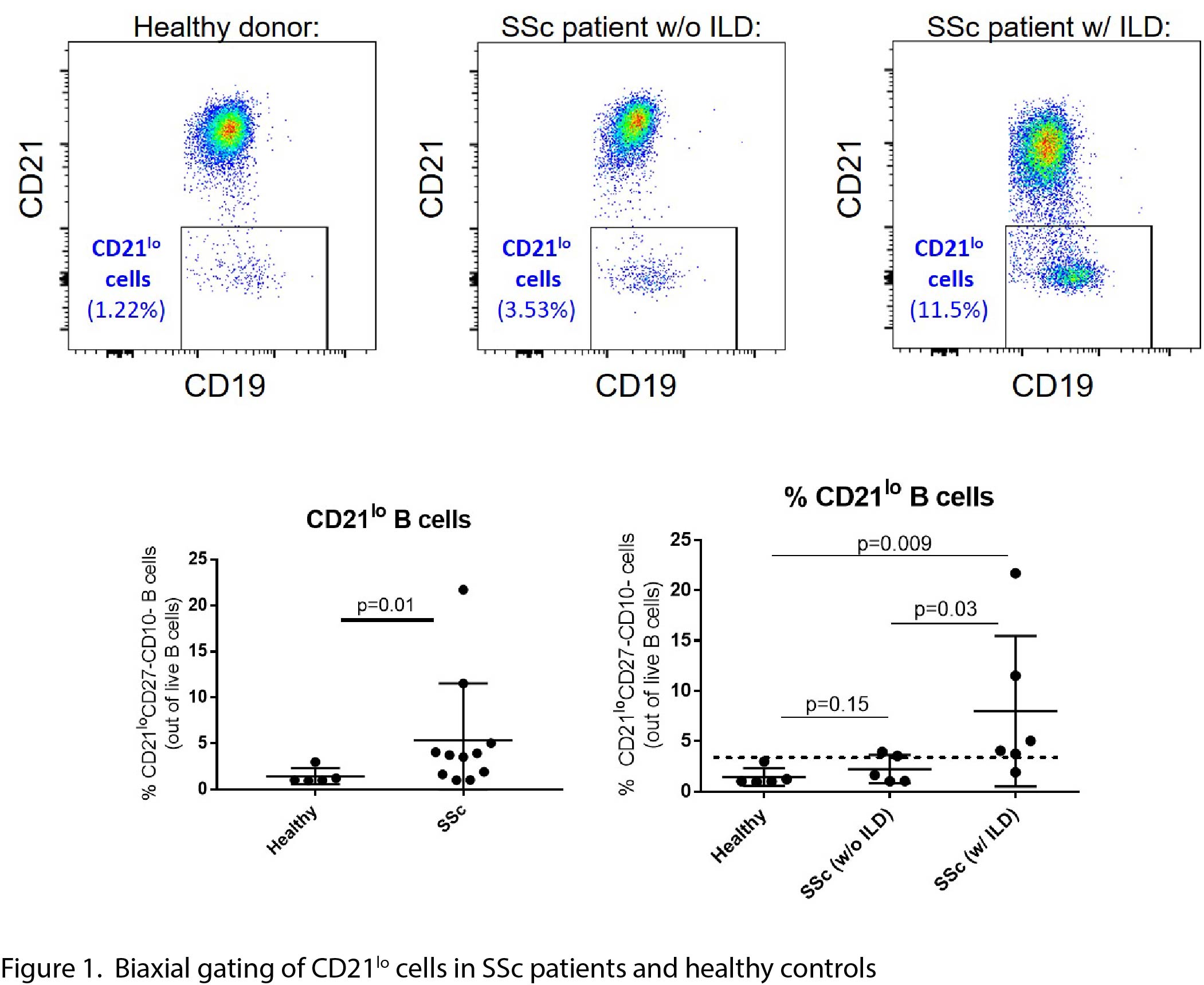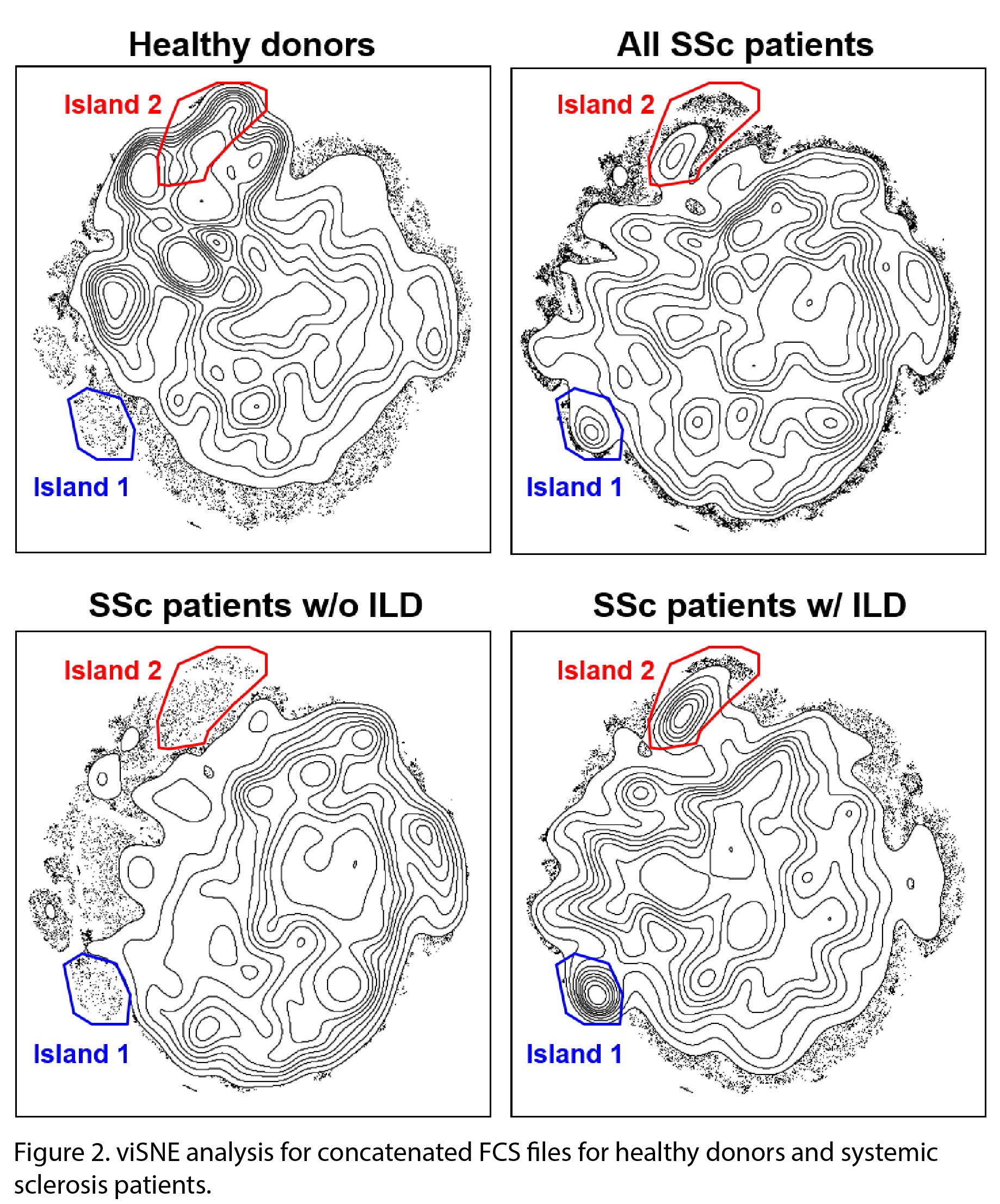Session Information
Date: Sunday, October 21, 2018
Title: B Cell Biology and Targets in Autoimmune and Inflammatory Disease Poster
Session Type: ACR Poster Session A
Session Time: 9:00AM-11:00AM
Background/Purpose: Systemic sclerosis (SSc) is a severe systemic disease characterized by fibrosis of the skin and visceral organs. While the exact pathogenesis of SSc is incompletely understood, there is increasing evidence that B cells and autoantibodies may play a role. Several autoimmune-prone B cell subsets have been previously described in other autoimmune conditions including subsets with low CD21 expression (CD21lo), high expression of CD19 (CD19hi), high expression of CD24 and CD38 (CD24hiCD38hi), and high expression of IgD with low expression of IgM (BND cells). We describe preliminary investigations to the presence of these subsets in SSc.
Methods: Cryopreserved peripheral blood mononuclear cells (PBMCs) were stored as part of the MYSTIC cohort (VUMC IRB 141415). Detailed clinical phenotyping was performed at the time of patient enrollment. PBMCs were thawed and subjected to fluorescence flow cytometry to investigate B cell phenotypes in patients with SSc (n=11) versus healthy controls (n=5). Data was analyzed with biaxial gating and the multi-dimensional unsupervised analysis tool viSNE, which displays single cells on a 2D ‘map’ based on their phenotypic similarity to each other in high dimensional space. Cell frequencies were compared using Mann-Whitney tests.
Results: Biaxial gating revealed that SSc patients had a significantly higher proportion of CD21lo cells relative to healthy controls (Figure 1). There was no difference in the frequency of CD19hi, BND, or CD24hiCD38hi cells. Subgroup analysis revealed patients with SSc associated ILD (SSc-ILD) had a higher frequency of CD21lo cells relative to patients without ILD (mean frequency 7.99% vs. 2.23%, p=0.03). Further analysis of the data—using viSNE–confirmed that CD21lo B cells were increased in SSc-ILD patients compared to SSc without ILD (p=0.03)(Island 1, Figure 2). viSNE analysis also revealed a population of CD24+IgM- memory B cells (Island 2) that were underrepresented in SSc patients without ILD (p=0.03).
Conclusion: Preliminary studies indicate that certain populations of B cells may be associated with SSc-ILD compared to SSc patients without ILD and healthy controls. These findings need to be validated in the larger MYSTIC cohort.
To cite this abstract in AMA style:
Wilfong E, Vowell K, Crofford L, Kendall P. CD21lo Cells Are Increased in Patients with Systemic Sclerosis and May be Associated with Interstitial Lung Disease [abstract]. Arthritis Rheumatol. 2018; 70 (suppl 9). https://acrabstracts.org/abstract/cd21lo-cells-are-increased-in-patients-with-systemic-sclerosis-and-may-be-associated-with-interstitial-lung-disease/. Accessed .« Back to 2018 ACR/ARHP Annual Meeting
ACR Meeting Abstracts - https://acrabstracts.org/abstract/cd21lo-cells-are-increased-in-patients-with-systemic-sclerosis-and-may-be-associated-with-interstitial-lung-disease/


